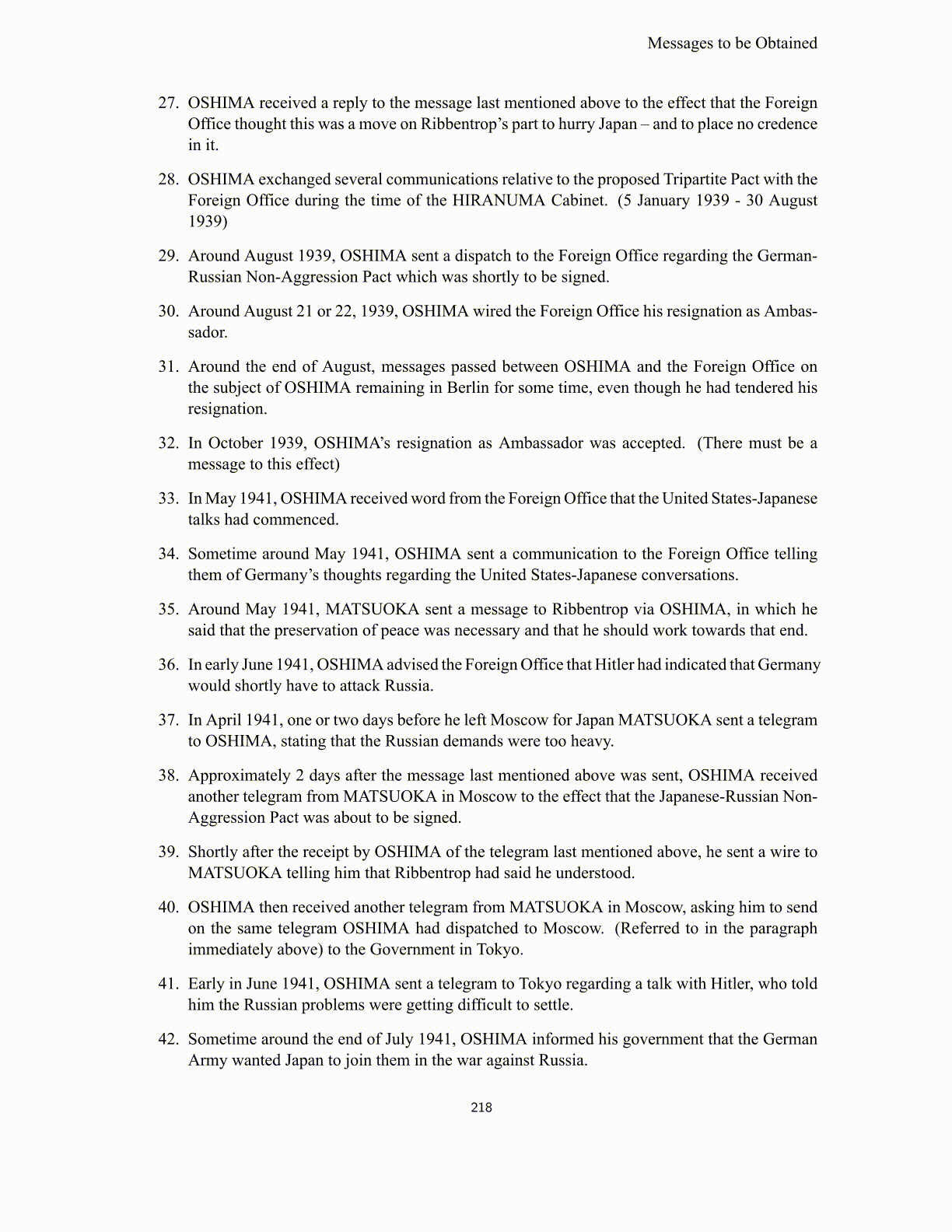
Messages to be Obtained 27. OSHIMA received a reply to the message last mentioned above to the effect that the Foreign Office thought this was a move on Ribbentrop’s part to hurry Japan – and to place no credence in it. 28. OSHIMA exchanged several communications relative to the proposed Tripartite Pact with the Foreign Office during the time of the HIRANUMA Cabinet. (5 January 1939 - 30 August 1939) 29. Around August 1939, OSHIMA sent a dispatch to the Foreign Office regarding the German- Russian Non-Aggression Pact which was shortly to be signed. 30. Around August 21 or 22, 1939, OSHIMA wired the Foreign Office his resignation as Ambas- sador. 31. Around the end of August, messages passed between OSHIMA and the Foreign Office on the subject of OSHIMA remaining in Berlin for some time, even though he had tendered his resignation. 32. In October 1939, OSHIMA’s resignation as Ambassador was accepted. (There must be a message to this effect) 33. In May 1941, OSHIMA received word from the Foreign Office that the United States-Japanese talks had commenced. 34. Sometime around May 1941, OSHIMA sent a communication to the Foreign Office telling them of Germany’s thoughts regarding the United States-Japanese conversations. 35. Around May 1941, MATSUOKA sent a message to Ribbentrop via OSHIMA, in which he said that the preservation of peace was necessary and that he should work towards that end. 36. In early June 1941, OSHIMA advised the Foreign Office that Hitler had indicated that Germany would shortly have to attack Russia. 37. In April 1941, one or two days before he left Moscow for Japan MATSUOKA sent a telegram to OSHIMA, stating that the Russian demands were too heavy. 38. Approximately 2 days after the message last mentioned above was sent, OSHIMA received another telegram from MATSUOKA in Moscow to the effect that the Japanese-Russian Non- Aggression Pact was about to be signed. 39. Shortly after the receipt by OSHIMA of the telegram last mentioned above, he sent a wire to MATSUOKA telling him that Ribbentrop had said he understood. 40. OSHIMA then received another telegram from MATSUOKA in Moscow, asking him to send on the same telegram OSHIMA had dispatched to Moscow. (Referred to in the paragraph immediately above) to the Government in Tokyo. 41. Early in June 1941, OSHIMA sent a telegram to Tokyo regarding a talk with Hitler, who told him the Russian problems were getting difficult to settle. 42. Sometime around the end of July 1941, OSHIMA informed his government that the German Army wanted Japan to join them in the war against Russia. 218